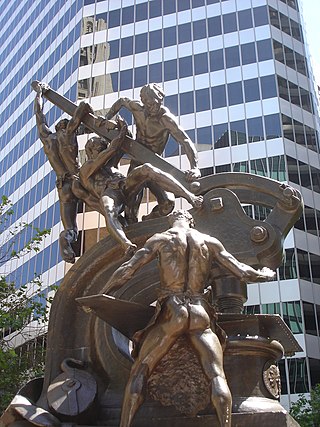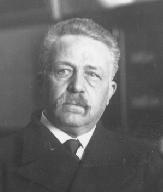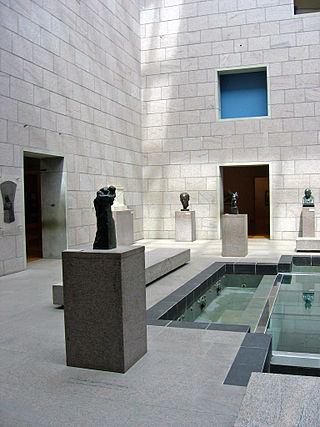Egalitarianism, or equalitarianism, is a school of thought within political philosophy that builds on the concept of social equality, prioritizing it for all people. Egalitarian doctrines are generally characterized by the idea that all humans are equal in fundamental worth or moral status. As such, all citizens of a state should be accorded equal rights and treatment under the law. Egalitarian doctrines have supported many modern social movements, including the Enlightenment, feminism, civil rights, and international human rights.
Meritocracy is the notion of a political system in which economic goods or political power are vested in individual people based on ability and talent, rather than wealth, social class, or race. Advancement in such a system is based on performance, as measured through examination or demonstrated achievement. Although the concept of meritocracy has existed for centuries, the first known use of the term was by sociologist Alan Fox in the journal Socialist Commentary in 1956. It was then popularized by sociologist Michael Dunlop Young, who used the term in his dystopian political and satirical book The Rise of the Meritocracy in 1958. Today, the term is often utilised to refer to social systems, in which personal advancement and success are primarily attributed to an individual's capabilities and merits.

A social class or social stratum is a grouping of people into a set of hierarchical social categories, the most common being the working class, middle class, and upper class. Membership of a social class can for example be dependent on education, wealth, occupation, income, and belonging to a particular subculture or social network.
Right-wing politics is the range of political ideologies that view certain social orders and hierarchies as inevitable, natural, normal, or desirable, typically supporting this position based on natural law, economics, authority, property, religion, or tradition. Hierarchy and inequality may be seen as natural results of traditional social differences or competition in market economies.

Populism is a range of political stances that emphasize the idea of "the people" and often juxtapose this group with "the elite". It is frequently associated with anti-establishment and anti-political sentiment. The term developed in the late 19th century and has been applied to various politicians, parties and movements since that time, often as a pejorative. Within political science and other social sciences, several different definitions of populism have been employed, with some scholars proposing that the term be rejected altogether.

Social class in the United States refers to the idea of grouping Americans by some measure of social status, typically by economic status. However, it could also refer to social status and/or location. The idea that American society can be divided into social classes is disputed, and there are many competing class systems.

Political sociology is an interdisciplinary field of study concerned with exploring how governance and society interact and influence one another at the micro to macro levels of analysis. Interested in the social causes and consequences of how power is distributed and changes throughout and amongst societies, political sociology's focus ranges across individual families to the state as sites of social and political conflict and power contestation.
The term social order can be used in two senses: In the first sense, it refers to a particular system of social structures and institutions. Examples are the ancient, the feudal, and the capitalist social order. In the second sense, social order is contrasted to social chaos or disorder and refers to a stable state of society in which the existing social structure is accepted and maintained by its members. The problem of order or Hobbesian problem, which is central to much of sociology, political science and political philosophy, is the question of how and why it is that social orders exist at all.

Snob is a pejorative term for a person who feels is superior due to their social class, education level, or social status in general; sometimes used specially when they pretend to belong to these classes. The word snobbery came into use for the first time in England during the 1820s.

Social stratification refers to a society's categorization of its people into groups based on socioeconomic factors like wealth, income, race, education, ethnicity, gender, occupation, social status, or derived power. It is a hierarchy within groups that ascribe them to different levels of privileges. As such, stratification is the relative social position of persons within a social group, category, geographic region, or social unit.
William Eugene Connolly is an American political theorist known for his work on democracy, pluralism, capitalism and climate change. He is the Krieger-Eisenhower Professor of Political Science at Johns Hopkins University. His 1974 work The Terms of Political Discourse won the 1999 Benjamin Lippincott Award.

In political and sociological theory, the elite are a small group of powerful people who hold a disproportionate amount of wealth, privilege, political power, or skill in a group. Defined by the Cambridge Dictionary, the "elite" are "those people or organizations that are considered the best or most powerful compared to others of a similar type."

Gaetano Mosca was an Italian political scientist, journalist and public servant. He is credited with developing the elite theory and the doctrine of the political class and is one of the three members constituting the Italian school of elitism together with Vilfredo Pareto and Robert Michels.

The sociology of education is the study of how public institutions and individual experiences affect education and its outcomes. It is mostly concerned with the public schooling systems of modern industrial societies, including the expansion of higher, further, adult, and continuing education.
In anthropology, an acephalous society is a society which lacks political leaders or hierarchies. Such groups are also known as non-stratified societies. Typically these societies are small-scale, organized into bands or tribes that make decisions through consensus decision making rather than appointing permanent chiefs or kings.
The Wee Shu Min elitism controversy occurred in October 2006 in Singapore. Wee Shu Min, daughter of parliament member Wee Siew Kim and a then eighteen-year-old student on Raffles Junior College's Humanities scholarship programme, found herself in controversy after posting on her blog what were viewed by some Singaporeans to be elitist, naïve, and insensitive statements against heartlanders.
In philosophy, political science and sociology, elite theory is a theory of the State that seeks to describe and explain power relationships in society. The theory posits that a small minority, consisting of members of the economic elite and policymaking networks, holds the most power—and that this power is independent of democratic elections.

Cultural policy is the government actions, laws and programs that regulate, protect, encourage and financially support activities related to the arts and creative sectors, such as painting, sculpture, music, dance, literature, and filmmaking, among others and culture, which may involve activities related to language, heritage and diversity. The idea of cultural policy was developed at UNESCO in the 1960s. Generally, this involves governments setting in place processes, legal classifications, regulations, legislation and institutions which promote and facilitate cultural diversity and creative expressions in a range of art forms and creative activities. Cultural policies vary from one country to another, but generally they aim to improve the accessibility of arts and creative activities to citizens and promote the artistic, musical, ethnic, sociolinguistic, literary and other expressions of all people in a country. In some countries, especially since the 1970s, there is an emphasis on supporting the culture of Indigenous peoples and marginalized communities and ensuring that cultural industries are representative of a country's diverse cultural heritage and ethnic and linguistic demographics.
Classical pluralism is the view that politics and decision-making are located mostly in the framework of government but that many non-governmental groups use their resources to exert influence. The central question for classical pluralism is how power and influence are distributed in a political process. Groups of individuals try to maximize their interests. Lines of conflict are multiple and shifting as power is a continuous bargaining process between competing groups. There may be inequalities but they tend to be distributed and evened out by the various forms and distributions of resources throughout a population. Any change under this view will be slow and incremental, as groups have different interests and may act as "veto groups" to destroy legislation. The existence of diverse and competing interests is the basis for a democratic equilibrium, and is crucial for the obtaining of goals by individuals.

Social inequality occurs when resources within a society are distributed unevenly, often as a result of inequitable allocation practices that create distinct unequal patterns based on socially defined categories of people. Differences in accessing social goods within society are influenced by factors like power, religion, kinship, prestige, race, ethnicity, gender, age, sexual orientation, and class. Social inequality usually implies the lack of equality of outcome, but may alternatively be conceptualized as a lack of equality in access to opportunity.











